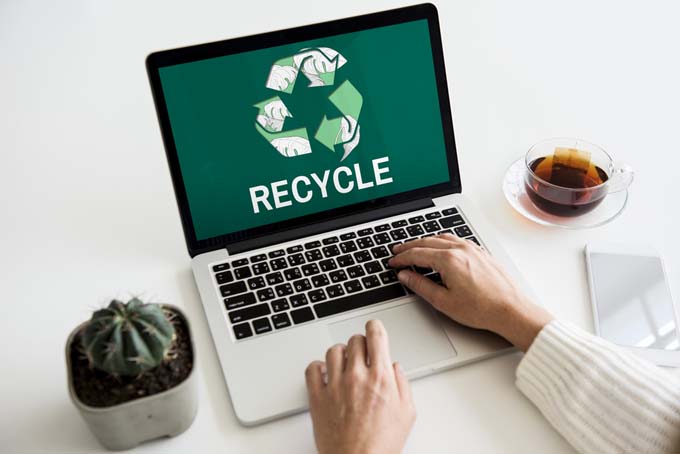Four environmental ordinances under consultation
The Federal Department of the Environment, Transport, Energy and Communications (DETEC) has just opened the consultation process for amendments to four ordinances in the environmental sector. These are the digitalization of procedures for the transport of hazardous waste and a ban on the dumping of reclaimed asphalt. In addition, there are new regulations for chemicals and pesticides as well as simplifications in the enforcement of the VOC steering tax.

The consultation period lasts until June 18, 2021. What are the changes to the four environmental ordinances about?
Transport of waste: digitalized procedures
As part of the e-government program, the Uvek is endeavoring to handle procedures of the authorities as digitally as possible. The present amendment to the Ordinance on the Transport of Waste (VeVA) creates further conditions for electronic control procedures. This will create the possibility of digitally recording applications for company numbers and disposal permits as well as hazardous waste transports within Switzerland. The systematic digitization of processes and forms will not only significantly improve data quality, but will also save 400,000 paper consignment bills per year.
Strengthening the circular economy
The available space in existing landfills is diminishing and the construction of new compartments would not only take several years but also meet with considerable political resistance. In view of the limited landfill capacity and the importance of sustainable soil and resource use, the amendment to the Waste Ordinance (VVEA) provides for a ban on the deposit of reclaimed asphalt from January 1, 2031. Life cycle assessments show that asphalt recycling is more environmentally friendly than landfilling because it increases its service life. The amendment to the Waste Ordinance thus takes up the Munz postulate (20.3090) and the Schilliger motion (19.4296) and promotes construction waste recycling by returning reclaimed asphalt to the cycle.
Chemicals and pesticides
The Chemicals Risk Reduction Ordinance (ChemRRV) regulates the handling of particularly hazardous substances, preparations and articles. The proposed amendments to the ChemRRV make adjustments to new provisions of EU chemicals law. The aim is to avoid trade barriers and to ensure the same high level of protection for health and the environment in Switzerland as in the EU. In addition, based on the motion Chevalley (19.4182) of September 26, 2019, adopted by Parliament, the marketing of oxo-degradable plastics is to be banned as in the EU. Oxo-degradable plastics contain additives that cause fragmentation of the plastics under environmental conditions and impair recycling. The amendments also concern regulations on plant protection products: stricter approval criteria for plant protection products for non-professional use are intended to reduce the risks to humans and the environment.
Simplifications in the incentive tax on VOCs
Volatile organic compounds (VOCs) are used as solvents in industry, commerce and households, for example in the manufacture of pharmaceutical products, in paints and various cleaning agents. VOCs pollute the air and can be harmful to health. Since 2000, an incentive tax has been levied on VOCs. The levy provides effective incentives to use VOCs more sparingly or to avoid their release. The Wobmann motion (15.3733), as amended by Parliament, instructs the Federal Council to simplify enforcement of the Ordinance on the Incentive Tax on Volatile Organic Compounds (VOCV) while maintaining the level of protection. Among other things, the bill simplifies the procedure for exemption from the levy for companies that have an exhaust air purification system and are taking or have already taken further measures to reduce their VOC emissions. The consultation documents contain further simplifications that will be implemented outside the ordinance.
Source: Confederation









